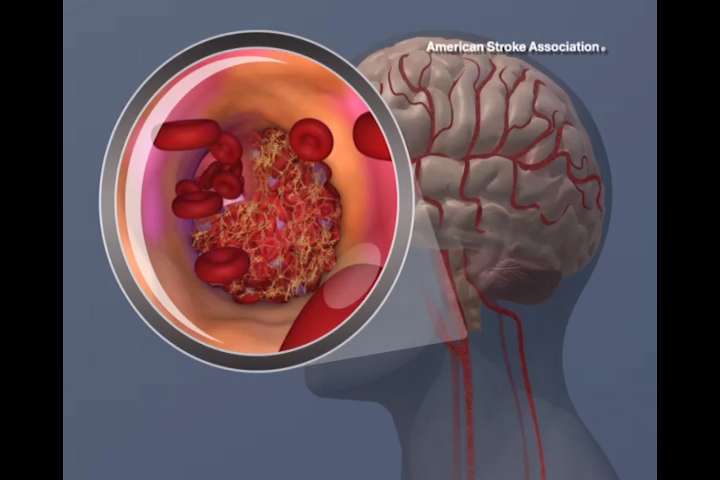Stroke recovery window may be wider than we think

Stroke survivors may experience delayed recovery of limb function up to decades after injury, according to a new case study. The article, published ahead of print in the Journal of Neurophysiology, was chosen as an APSselect article for July.
The subject of the study is a man who suffered a stroke at age 15, leaving his left hand nonfunctional even after a regimen of physical therapy. Twenty-two years after the stroke, the man started swimming regularly after his doctor suggested it to lose weight. One year later, the man was able to move his left fingers in a limited capacity. He returned to physical therapy for several years and improved his recovery to the point of picking up small objects with his left hand.
Researchers in London, Ontario, Canada, performed functional magnetic resonance imaging (fMRI) while the man flexed his fingers. They found that the nerve cells that control sensation (sensimotor neurons) on both sides of the brain had reorganized more than two decades after the stroke, leading to regained function. The research team suggested that a combination of physical activity and his young age when the stroke occurred might explain the late recovery. The man had previously regained function in his shoulder and elbow; the increase in activity seen with swimming may have provoked the reorganization of the sensimotor neurons. "The marked delayed recovery in our patient and the widespread recruitment of bilateral areas of the brain indicate the potential for much greater stroke recovery than is generally assumed," the researchers wrote.
More information: Peter Sörös et al. Motor Recovery Beginning 23 Years After Ischemic Stroke, Journal of Neurophysiology (2017). DOI: 10.1152/jn.00868.2016

















